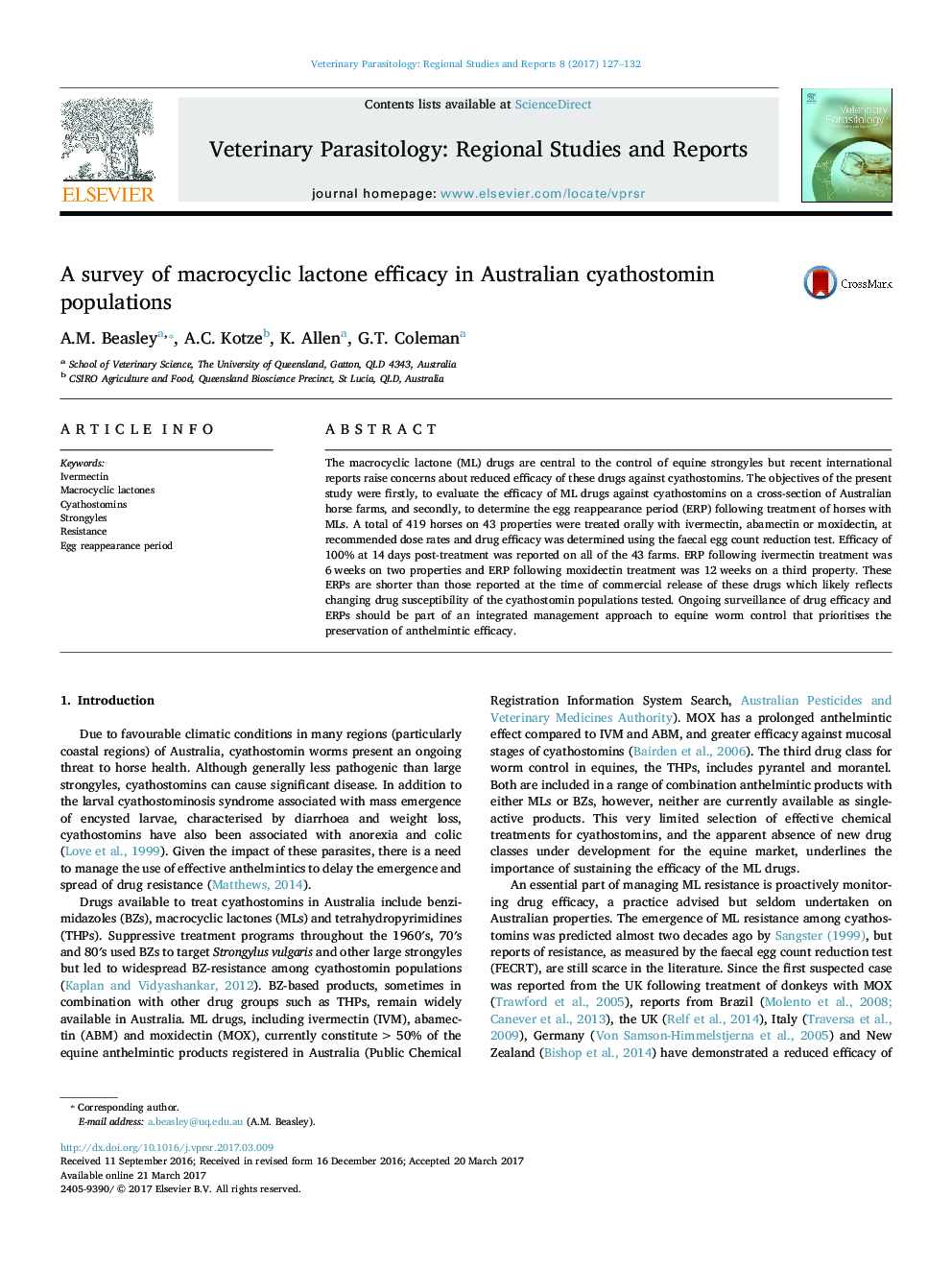| Article ID | Journal | Published Year | Pages | File Type |
|---|---|---|---|---|
| 5546049 | Veterinary Parasitology: Regional Studies and Reports | 2017 | 6 Pages |
Abstract
The macrocyclic lactone (ML) drugs are central to the control of equine strongyles but recent international reports raise concerns about reduced efficacy of these drugs against cyathostomins. The objectives of the present study were firstly, to evaluate the efficacy of ML drugs against cyathostomins on a cross-section of Australian horse farms, and secondly, to determine the egg reappearance period (ERP) following treatment of horses with MLs. A total of 419 horses on 43 properties were treated orally with ivermectin, abamectin or moxidectin, at recommended dose rates and drug efficacy was determined using the faecal egg count reduction test. Efficacy of 100% at 14Â days post-treatment was reported on all of the 43 farms. ERP following ivermectin treatment was 6Â weeks on two properties and ERP following moxidectin treatment was 12Â weeks on a third property. These ERPs are shorter than those reported at the time of commercial release of these drugs which likely reflects changing drug susceptibility of the cyathostomin populations tested. Ongoing surveillance of drug efficacy and ERPs should be part of an integrated management approach to equine worm control that prioritises the preservation of anthelmintic efficacy.
Related Topics
Health Sciences
Veterinary Science and Veterinary Medicine
Veterinary Science
Authors
A.M. Beasley, A.C. Kotze, K. Allen, G.T. Coleman,
